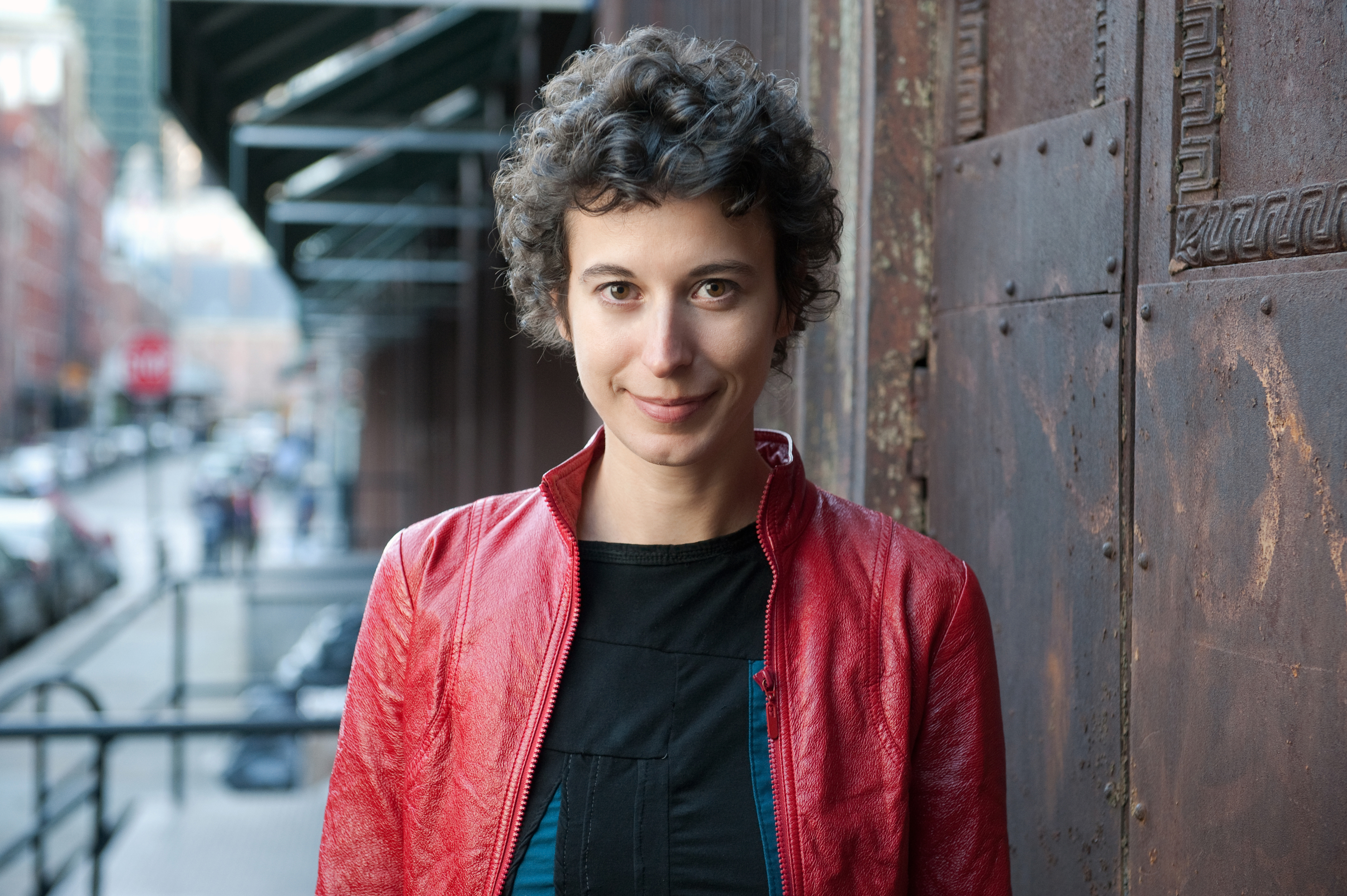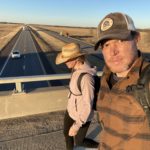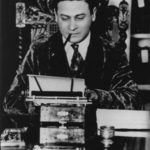Born and raised in Croatia, New York-based Anja Mutic has been traveling the world professionally since 2000. Her writing — which has won several awards — has appeared in The Washington Post, The Wall Street Journal, New York Magazine, National Geographic Traveler and BBC Travel. Fluent in Croatian, English and Spanish, she has authored or contributed to Lonely Planet guidebooks for Croatia, Bolivia
, and Chile
.
How did you get started traveling?
I was raised on a steady diet of trips. My father, a sports journalist and newscaster in former Yugoslavia — the country where I grew up — took us along on any trip he could. We often joined him to sports events around Europe, since my parents saw traveling as the best education they could give their children.
One time the whole family went to the US — to Colorado for a ski championship and on to LA to visit my parents’ friends who lived there at the time. That first big transatlantic trip was a game-changer for me. I was in high school and California seemed like a dream. I remember being totally fascinated with the sundry set of characters on Venice Beach. I had never seen such diversity and fell head over heels with California.
Later on I realized it wasn’t anything to do with California itself and all to do with discovering worlds new to me. To a high school kid who grew up in a largely homogenous society of socialist Yugoslavia, California really was a dream.
Later on there were other trips, more and more of them. Including all my “permanent departures” — like leaving Croatia in 1993 to move to England (first as an au pair, and later to study), then on to the US after four years, then all the moves within the US (Vermont, Massachusetts and New York). There were also my “mini-lives,” as I like to call them — stints of several months, in Buenos Aires, Lisbon — and of course countless trips in between.
How did you get started writing?
As with traveling, I’ve always been writing. I wrote — and illustrated — my first book of short stories when I was eight, about a group of farm animals who decide to break free and go explore the wild. Then there was poetry, more short stories, essays.
Much later, a year after I moved to New York, in 1999, I got a job as an online travel editor at Rough Guides. I was in charge of commissioning travel articles for the website, from authors who were on the road researching guidebooks. While I loved editing those stories, a couple of years into the job I realized I’d rather be in their shoes than sit in an office under fluorescent lights dreaming of the open road. So I convinced my boss at the time to give me a sabbatical from my desk job and let me do a guidebook gig. That’s how I ended up in Bolivia in 2002, on a five-week research trip. And that was how my travel writing career kicked off — I penned a chapter on Bolivia for the South America guidebook. The problem was — I couldn’t go back to those fluorescent lights. Not in good faith at least. I knew I’d be doing something against my nature.
What do you consider your first “break” as a writer?
I think my first break was actually going freelance. For a couple of years after returning from Bolivia, I was antsy but too nervous to quit my full-time job. You know the fears — how will I support myself, alone in the Big (bad) Apple, without a safety net (all my family and most friends were in Europe at the time). Until one day a door opened, in the spring of 2004, and I took a plunge. It was the best plunge ever — almost ten years later I’m still riding that wave.
Yes, it was extremely scary but also exhilarating. But, like with most things in life, it’s a process, and I’m still growing as a writer. Every time I write for a new publication, I see it as a “break.” For example, I was pitching stories to National Geographic Traveler for a couple of years before I got my first assignment. These are all milestones of sorts, little rewards you get along the way.
As a traveler and fact/story gatherer, what is your biggest challenge on the road?
My biggest challenge is how not to get jaded. This may sound strange but it’s not easy approaching the world with fresh eyes when you’re constantly seeing new incredible things and having amazing experiences. It’s so easy to start taking that for granted.
I always joke and say that my life is all about having once-in-a-lifetime experiences on a regular basis. It often feels that way. It’s quite surreal to one day be diving with sharks in Bora Bora and then lounging at an overwater bungalow, only to have that followed by a hot-air balloon ride over Maasai Mara at sunrise and then a private sunset yoga lesson with an unobstructed view of the Taj Mahal. Sometimes all that in a span of a few weeks. Sure there’s a pocket out there who consider this regular. But it’s far from normal for most people in this world, in which the vast majority can’t leave their village, town, neighborhood.
This lifestyle of travel is also not normal for somebody who grew up in a different world, a country plagued by war, where people who left didn’t leave to go on a holiday. My people — this includes some of my best friends — left as refugees, forced out of their homes. Perhaps you wonder how all that is related to travel? I think about this on a daily basis. Travel didn’t just fall into my lap as a lifestyle. I don’t take it for granted. Travel for travel’s sake is a privilege.
So, coming back to my biggest challenge as a traveler and story gatherer, I am working hard to fight against complacency, against being blasé about my frequent movement around this world — and the very freedom to do so.
What is your biggest challenge in the research and writing process?
Sometimes, when the research involves getting info from other people and the person in question isn’t the best communicator, it can feel like pulling teeth. Getting just the right material from your source can be a nightmare. People don’t understand how detailed we need to be as writers and reporters, that it’s all about the minutia, that it’s small things that make up good stories. So if you don’t gather enough of that kind of info, the actual writing can be really difficult. Generalizations and overuse of adjectives hide poor research and tip off lazy writing.
Another big challenge for me is actually sitting down and starting a story (or a guidebook project). I’ve become a functioning procrastinator in recent years. I put things off until too late, and then to actually begin seems like the most difficult thing ever. Once I start, though, things tend to flow smoothly. In fact, my longer-form narrative stories (sadly, by that I mean 1800 words) typically come out in one fell swoop. It often feels like I’ve taken a deep breath and once I’ve exhaled, a (very rough) draft of the story is on paper/screen. Then comes rewriting, tweaking, self-editing, more tweaking. That leads to another challenge: how to let go of a story and click “send.”
What is your biggest challenge from a business standpoint?
Finances are the bane of my existence, I’d say. Since going freelance in 2004, I’ve made a living as a freelance travel writer, which is a miracle in itself. I often say that the fact I don’t owe or own anything is a blessing (although some out there see it as a curse).
Sometimes it feels like I was on a long honeymoon until 2008. I was able to make a healthy living as a freelancer and didn’t worry much about paying next month’s rent. But then everything changed when the economy crashed, including the travel space, which has since become a lot more cut-throat.
Another challenge for me has been living in New York, which is such a money-drainer. So since 2008, I’ve started to mix things up, spending more and more time abroad, and taking more assignments that keep me out of the city longer. For example, I’m spending the next few months in Croatia, where rent is cheaper and I can afford to carve out time and space for my neglected creative projects (like the book I’ve been writing, very slowly). I find it nearly impossible to set aside the time in New York, where I’m always juggling a number of writing projects and simultaneously looking for more work. The fear of being broke is so intense in New York, because — without a safety net of a trust fund, parents, spouse — it is easy to become broke as a (travel) writer. So when I’m in New York I’m typically on a pitching spree. In fact, this pitching frenzy has become a default mode for me so I’ve actually had to consciously prevent myself from pitching in the last couple of months. Otherwise I often face too many assignments at once and I’m left with no time for anything else. I truly admire professional travel writers who manage to carve out the time to work on their books. I haven’t been able to do that and that’s a big issue at the moment, trying to get back to my creative writing.
Have you ever done other work to make ends meet?
It’s quite a miracle that I’ve been able to support myself wholly on travel writing (and travel-related activities) since 2004. People often don’t believe me when I say that, because they see me jetting off from one exotic place to the next. The truth is, I’ve become a great survival artist. I often joke that the tagline for my life should be: “Living the high life below the poverty level.” Because that’s really what my life has been about since I went freelance.
Sure, there have been a few other sources of income rather than just writing. All are linked to travel though. I taught online travel writing classes for Mediabistro, for example. In the last couple of years, I’ve been bringing small select groups of U.S. journalists to Croatia once a year for a number of clients (a regional tourism board and a hotel group). I’ve really enjoyed playing destination advocate for a place I dearly love, showing it off to my fellow writers — and seeing it through their eyes. It’s been helping me fall in love with my homeland, over and over again.
What travel authors or books might you recommend and/or have influenced you?
I love the work of Ryszard Kapuscinski, the late Polish journalist, whose dispatches of “literary reportage” from various conflict zones around the world make for amazing travel reading. A book that marked me, among many others, is Beryl Markham’s West with the Night, a 1940s memoir of this woman’s adventures as a bush pilot in Kenya.
What advice and/or warnings would you give to someone who is considering going into travel writing?
Do it for the love of travel. Forget about the cliché of sipping cocktails under a palm tree and getting paid for that. Travel writing has its perks but it’s hard work and it’s not for everyone. So before you quit your day job, make sure you’re cut out for it.
Do a test run first: Hit the road without many expectations, and let the road lead you. Allow yourself some time and then see where it’s taken you, take your pulse, and see if you’re still as thrilled about continuing. If you are, you’re probably good to go down the travel writing road.
What is the biggest reward of life as a travel writer?
The rewards are many, but freedom is definitely among the highlights. I love the fact that I’m not tied to any specific location in order to do my work and make a living. I love the fact that the world is my office and my office is the world.
I also love the variety of experiences I’ve amassed on my travels. My late father taught me that one’s wisdom and wealth come from the “pictures” gathered over a lifetime. He believed travel was the best way to collect these. I guess that would make me filthy rich and very wise by now.





